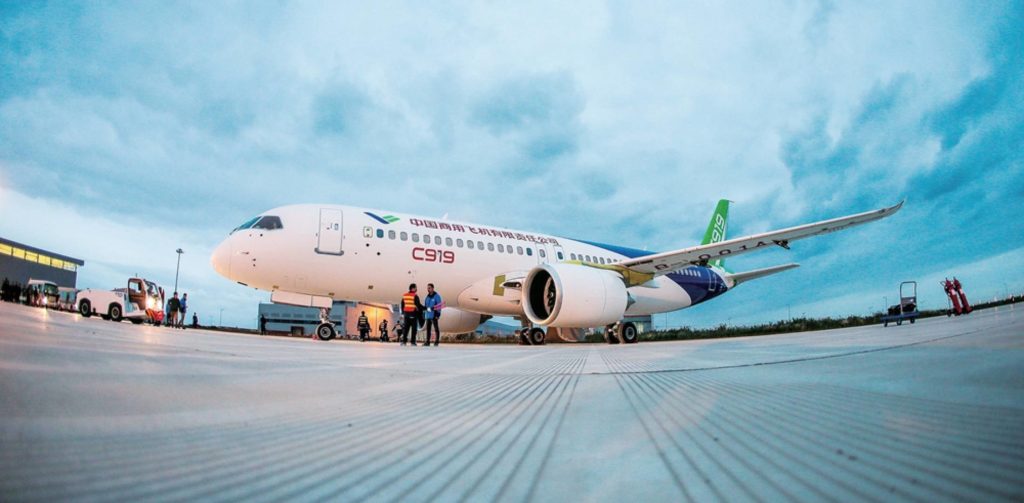




24 Sep 2025
Aviation Management: Careers, Skills, and Opportunities
Airports are living, breathing hubs of activity. Thousands of passengers rush through terminals, planes take off and land with precise timing, cargo moves across continents, and entire cities rely on seamless air travel. Behind this orchestrated chaos, however, is a carefully managed system, a system called aviation management.
Aviation management isn’t just about operating airlines or airports. It’s about creating efficiency, ensuring safety, staying compliant with global regulations, and driving profitability in one of the world’s most complex industries. If you’ve ever wondered who keeps the skies safe while making air travel accessible and reliable, the answer often lies with aviation managers.
What Exactly Is Aviation Management?
At its core, aviation management is the business of aviation. It combines traditional management principles with aviation-specific knowledge, covering areas like law, finance, logistics, safety, and customer service. While pilots navigate planes, aviation managers orchestrate everything behind the scenes from flight schedules and fuel contracts to airport operations and customer satisfaction strategies.
In essence, aviation management bridges the dynamic demands of the aviation industry with the structured principles of business management. It’s a field that requires both strategic thinking and operational expertise.
What Does an Aviation Manager Actually Do?
Think about your last flight: checking in your bags, passing through security, boarding on time, and watching your luggage appear on the carousel at your destination. None of that happens by chance. Behind the scenes, aviation managers are the ones making sure the system works.
- At Airports: They keep terminals moving from passenger check-in to baggage handling to ensuring runways are safe for takeoff. If even one step breaks down, flights get delayed and thousands of travelers are affected.
- For Airlines: Managers decide where planes fly, how ticket prices are set, and how fleets are maintained. Their choices determine whether an airline runs smoothly or loses money.
- Safety and Security: Every regulation, from cabin checks to runway protocols, is enforced by managers who can’t afford mistakes because in aviation, safety is everything.
- Regulatory Compliance: Aviation runs on rules. Managers ensure airlines and airports meet local and international laws, avoiding costly penalties or grounding.
- Cargo and Logistics: Think of your online shopping. Aviation managers oversee the cargo networks that make next-day deliveries possible.
- Finance: With billions invested in aircraft and operations, managers handle budgets, contracts, and cost optimization to keep businesses afloat.
In short, aviation managers are the people who make sure the global aviation system doesn’t fall apart connecting passengers, goods, and businesses across the world.
So, Are There Courses for Aviation Management?
If you’re wondering how to get into aviation management, the first step is usually education. The good news? There are plenty of ways to learn. Whether you’re just finishing high school or already working and looking to specialize.
- Undergraduate Degrees: Programs like a BBA in Aviation Management or BMS in Aviation Studies mix business fundamentals with aviation-specific subjects. They’re the launchpad for students who want to enter the industry straight after school.
- Postgraduate Degrees: An MBA in Aviation Management prepares professionals for leadership roles. These programs dive deeper into international aviation law, airline strategy, finance, and operations.
- Diplomas & Certifications: Organizations like IATA offer short-term programs focused on air cargo, ground handling, and safety. These are highly recognized worldwide and perfect for targeted skill-building.
- Online & Short-Term Courses: Flexible options let professionals learn while they work, covering areas like aviation finance, logistics, and compliance.
No matter the path, aviation management courses are built around real-world problem-solving making sure students graduate with skills they can apply immediately in airports, airlines, or consulting firms.
What Jobs Can You Get in Aviation Management?
One of the biggest draws of aviation management is the variety of careers it opens up. Whether you’re interested in operations, finance, or consulting, there’s a path for you:
- Airline Manager: Oversees everything from route planning to marketing, ensuring an airline stays profitable and competitive.
- Airport Operations Manager: Keeps airports running smoothly by coordinating passenger services, security, and ground handling.
- Aviation Consultant: Works with airlines, airports, or even governments to improve efficiency, safety, and compliance.
- Logistics & Cargo Specialist: Manages the global movement of goods, a critical role in today’s e-commerce-driven world.
- Aviation Finance Professional: Focuses on budgets, leasing, investments, and managing the economic side of the aviation industry.
- Customer Service Leadership: Ensures passengers have a smooth journey, handling service quality and crisis management.
To thrive in these roles, aviation managers need strong leadership, quick decision-making, financial know-how, and the ability to stay calm under pressure.
Aviation management isn’t just a single career track, it’s a gateway to multiple high-stakes, global opportunities.
How Much Can You Earn in Aviation Management?
If you’re wondering about pay, here’s the breakdown:
- Starting out (Entry-Level): Fresh graduates usually earn about $35,000–$50,000 a year in places like North America and Europe. In Asia, it’s often a bit lower.
- After some years (Mid-Level): With 5–10 years of experience, salaries jump to around $70,000–$120,000, depending on your role and location.
- Top positions (Senior-Level): Leaders, executives, and consultants can make $150,000 or more, especially in big aviation hubs.
And it’s not just about the money, the scope is huge. Air travel is set to double by 2040 (IATA), and e-commerce growth means more air cargo jobs than ever before. That makes aviation management a career with both high pay and long-term demand.
Is Aviation Management a Good Career?
When people think about this field, it’s not just about money, it’s about whether the job fits their skills and interests.
Why it’s rewarding:
- Work in global markets and international operations.
- Choose from a wide range of career paths from operations to finance, logistics, and consulting.
- Enjoy strong growth prospects as the aviation industry keeps expanding.
What makes it challenging (but exciting):
- The work is fast-paced, with decisions that matter on a big scale.
- Aviation runs 24/7, so schedules can be non-traditional.
- Compliance and safety standards are strict, which makes precision and detail a must.
In simple words: if you like problem-solving, staying sharp under pressure, and want a career that connects you to the world, aviation management can be both demanding and deeply rewarding.
Does Aviation Management Have a Future?
Absolutely and it looks brighter than ever. The aviation industry is changing fast, and managers are at the center of that change.
- Sustainability matters: Airlines are working toward net-zero emissions. Managers are driving projects like eco-friendly airports, carbon tracking, and sustainable aviation fuel.
- Tech is taking off: Tools like AI, IoT, and predictive analytics are making everything from flight planning to cargo handling smarter and safer.
- New regions are growing: Countries in Asia, Africa, and the Middle East are becoming major aviation hubs, opening up fresh career opportunities.
- Cargo is booming: Thanks to e-commerce, air cargo is now one of the most important revenue streams, creating more demand for skilled managers.
In short, aviation management isn’t just about keeping flights on schedule, it’s about building the smarter, greener, and more connected air travel system of tomorrow.
How Can I Start a Career in Aviation Management?
If you’re curious about working in aviation management, the good news is there are clear paths to get started.
For students:
- You can study business or management coursesthat focus on aviation
- Try to get internships at airports, airlines, or aviation companies. That's where you’ll see how things really work.
- Start building connections early by joining events or student aviation groups.
For professionals:
- If you’re already working, you can boost your career with an MBA in Aviation Management or certifications from groups like IATA.
- Gaining experience in operations, finance, or logistics will make you a stronger candidate.
- Keep learning new rules, digital tools, and green initiatives are always changing how aviation works.
In simple terms: getting started means learning the basics, getting real-world experience, and staying curious. Aviation management is a field where your skills grow as the industry grows and right now, the sky really is the limit.
Conclusion: Is Aviation Management the Right Path for You?
Think about this: airports never sleep, airlines connect the world, and every flight depends on managers who keep it all running. Aviation management is about making sure the system works safely, smoothly, and smartly.
It’s not always easy, it takes focus, quick thinking, and leadership. But for people who dream big, love to travel, or want to be part of a global industry, it can be one of the most exciting careers out there.
So here’s the real question: the aviation world is looking for its next leaders. Could you be one of them?





